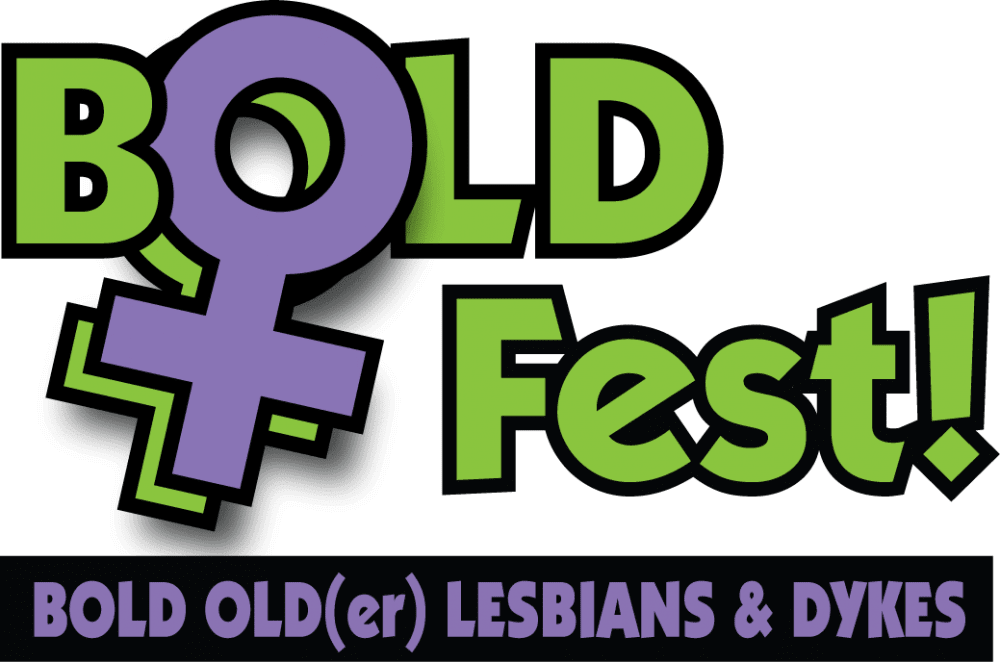Women’s space is about more than finding a potential partner; it is a place to feel empowered.”
Most of us Long-Lived Lesbians have been around enough to see the rise and fall of many a dyke-friendly coffeehouse, bookstore, or bar. As those institutions are closing or changing, do we miss them? This guest opinion column is by Sharon McDonell, a writer living in California and working on a memoir about the gay 80s.
The day the Supreme Court ruled in favor of marriage equality, I rushed to the California State Capitol after work to celebrate with married friends. But despite our jubilation, I’m afraid lesbians may settle for the ‘privilege’ to finally marry. Major win though it is to have marriage equality, I still see the need for us to work together on other important goals.
Places where lesbians once gathered have been vanishing. I mourn the loss of the Michigan’s Womyn’s Music Festival. In Sacramento, capital of California, we no longer have a lesbian bar, a women’s bookstore, or women’s professional basketball team. I worry that lesbian-centered events will keep disappearing, until even our few remaining lesbian dances are just memories. But it’s not just socializing that matters. I still value lesbian spaces for forming connections, building community, and bringing about change.
The June decision made me reflect on my participation in my community. Although I walked in the Sacramento Lesbian and Gay Pride parades, applied for a marriage license in Valentine’s Day protests, and worked with the campus LGBT center, as of the middle of 2015 I had not been to a women’s festival or lesbian conference for years. I’d been overwhelmed by raising a child. Now in my fifties (and with my daughter in her mid-twenties) and relatively free, I considered whether attending a women’s festival or lesbian conference — finding a true women only space — was worth the experience. My memories on the importance of women only space had grown dim. What, exactly, did I hope to achieve by getting together with a group of dykes?
I wasn’t sure, but, wanting to leave California’s summer heat and drought, I decided to attend the BOLD (Bold Older Lesbians and Dykes) Conference in Vancouver, B.C. On the first day, in a city I’d never before visited, I felt I had come home. I had found the space I had been craving, without knowing exactly what I had missed. These women were of a similar age and spoke the same languages—English and Lesbianese. We talked about how the world had changed: legalized marriage, rainbow sidewalks, and Orange Is the New Black. And we discussed the needs we still have: women’s space, a lesbian support network, places to meet.
I remembered that women’s space is about more than finding a potential partner; it is a place to feel good about our bodies, our lives, the diversity of women, and the abilities of women, a place to feel empowered and supported. When I left the conference, I was looking forward to sharing the song “Breast Cancer Pink” with friends and cancer survivors. I was excited about connecting with lesbians I’d met in the Writing Circle Workshop. And I felt energized by attitude and actions of the young lesbian who addressed our conference, Caroline Doerksen. Mentored by the older lesbian activists, she is working to change attitudes at her college.
On my flight home from Vancouver, while sitting next to a straight couple, I felt the return of my uneasiness and fear of our being marginalized. A long discussion ensued after the husband asked me, “Are you and the others [at the conference] happy now that you can marry?” Similar to my conservative relatives, my seat-mates felt we should be happy with the change in attitudes and legislation.
Women’s spaces are important for us to support each other and to collaborate to end discrimination in employment and housing, advocate for our health care needs, including the needs of our disabled and aging. It’s great that some of us can legally get married, but all of us LGBT people matter, including those of us who are still in the closet, or those who are old, sick and/or poor. Let’s keep meeting in lesbian spaces to continue the conversation and the work. We need to press for health research that focuses on non-childbearing women, for employment legislation without gender bias, for women-only eldercare housing, and we have to stop the far right from taking away the gains we’ve made. Let’s stay connected to help each other and our lesbian sisters coming up behind us, and let’s do it in places where we make the culture and the rules.
